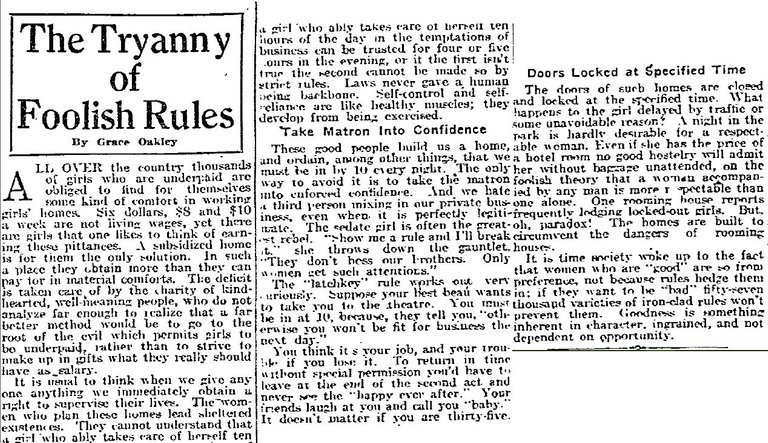One of the things historians talk about is how bias affects historical scholarship. Even when we try to be as objective as possible we can never fully escape the Biases in the sources themselves, in whatever historical method we choose, in our language, in the culture and time we belong to, and even in each individual historian. Steemit could make a good platform for reducing some of these biases—with a worldwide base and diverse community, many individuals could give their own takes on a primary source, contributing to a better understanding of it. Of course, this method will likely introduce biases of its own. However, I’d like to give it a try. So in this post, instead of looking at sources myself and writing a short history, I’m going to share some primary sources, my initial notes about them, and invite you to share your notes and thoughts on them in the comments.
I decided to do a search for today in the Inquirer. This is one article I found: Here are some of my notes. -Who is Grace Oakley? Seems like she might live at one of these homes—more research is needed -How can this be made relevant to the present day? 100% of the SBD rewards from this #explore1918 post will support the Philadelphia History Initiative @phillyhistory. This crypto-experiment conducted by graduate courses at Temple University's Center for Public History and MLA Program, is exploring history and empowering education. Click here to learn more.
Source: Grace Oakley, “The Tyranny of Foolish Rules,” The Philadelphia Inquirer, February 13, 1918. © This entire product and/or portions thereof are copyrighted by NewsBank and/or the American Antiquarian Society. 2004. Used for educational/academic purposes.
-What does this tell us about 1918 America?
Please share your thoughts, ideas and notes in the comments!

I'd be curious what others have to say about this bias-check experiment, but I'd want to focus more on not what we think so soon, but to examine for text in the article for what it is saying. Less about us and more them - at least at first. For instance, why not spend some time dissecting this looking for the argument:
Architect Louis Kahn is famous for guiding his students in a master class at UPenn to be humble before their materials:
Similarly, we need to humble ourselves before our materials and ask them what they want to be and to say. When we fail to do that, we are probably introducing one kind of bias or another.
Let's always ask our primary sources what they want to say. And then listen -- carefully. And be open to how they want to be presented.
Reminds me of the Rodgers & Hammerstein musical, Carousel, which I saw for the first time over the summer. One of the young woman characters in the play was living in a boarding house with a requirement to be home before curfew (about 20 minutes in the linked video). If she was late, she was threatened with losing her job as well as her home.
According to wikipedia, that was based on the 1909 Hungarian play, Liliom. If that scene came from Liliom and if that was based on actual events, this sort of requirement might have been an international phenomenon in the early decades of the 20th century.
Also, this excerpt is interesting:
In the first portion, you're tempted to think of it in a modern context, ala Lily Ledbetter, but the second sort of contradicts that idea, as if Oakley is complaining about laws that are already on the books. And that reminds me of The Misogynist Origins of American Labor Law.
I really would like to know more about what Oakley thought was, "the root of the evil which permits girls to be underpaid"